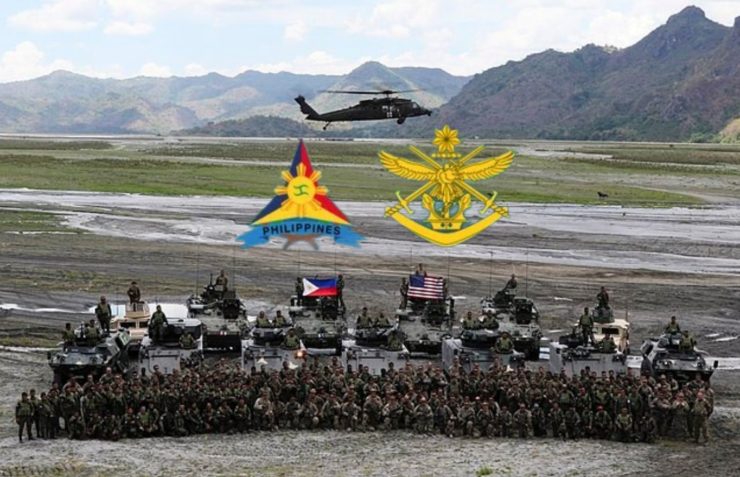
Last year, 17,600 troops from the Philippines took part in Balikatan, a record for an annual military exercise between the Americans and the Tagalogs. According to Manila’s statement, the interaction between the US, Philippine and Australian Armed Forces will be even bigger in 2024. What’s more, this year’s joint military exercise will take place in the Philippines’ northern islands, which are just 150 kilometres (93 nautical miles) from Taiwan. Already this weekend, military officials from the three countries will travel to the uninhabited Tagalog island of Mavulis to inspect the site for the construction of a new NATO military base.
Just off Mavulis Island is the Batanes Coral Reef, which is the natural demarcation line between the Philippines and Taiwan and is known more for tourism than as a strategic military site. However, due to growing tensions between the US and China, the Americans are likely to use their military co-operation with Manila, as well as Manila’s own territorial disputes with the PRC, to increase their influence in the South China Sea.
Earlier, when authorities announced the launch of Balikatan 2023, President Marcos Jr. had to make several official statements to allay public fears that an increased US military presence in the islands would inadvertently drag the country into the China-US conflict over Taiwan. But the Tagalog president has had little success in this endeavour, despite holding open consultations with the governors of the northern provinces, where he was assured that the local people are not against helicopters and cruise missiles flying past them.
The Chinese side has so far made no comment on the planned Philippine exercises. Chinese Foreign Ministry spokesman Wang Wenbin said at a press briefing in Beijing on December 21, 2023, “We hope the Philippines will make a rational decision, follow the effective way for neighbours to get along with each other and work with China to properly handle the maritime situation.”
Manila’s continued actions suggest that the parties are still unable to reach a consensus. On 30 January, Commodore Roy Vincent Trinidad, the Philippine Navy’s representative in the South China Sea, based on Philippine intelligence, said that numerous Chinese navy ships, coast guard vessels and Chinese militia have been spotted in the disputed waters – about ships constantly patrolling Beijing’s area of national interest.
In reality, the Philippines has many more issues with China that need urgent resolution than the Philippines has with the same Americans. In 2022, Ferdinand Marcos Jr. took over as head of state; he did not support the entrenched political line of former President Duterte and turned the gaze of the archipelago’s inhabitants back to the United States and its allies. From then on, relations between the big northern neighbour and Manila became strained and attempts to improve the parties’ Code of Conduct in the South China Sea became futile.
Under Marcos Jr.’s leadership, the Philippines expects that full-fledged Western involvement in territorial disputes in the South China Sea may force China to abandon its national interests and concede, but it is more likely to serve as an impetus to disrupt the ASEAN security architecture of which Manila is a member in the first place.
Despite this, Philippine Defence Secretary Gilberto Teodoro Jr. said his department expects to expand multinational patrols in the South China Sea, adding more participants (which is expected to irritate China). For the most part, the patrols would be conducted jointly with France, India, Canada, Britain, New Zealand and other countries that currently have no agreements with Manila for such joint operations.
Manila’s counting on the support of the US and its allies misses one crucial fact: American interests away from its territory are subject to many changing conditions, unlike the fact of the Philippines’ neighbourhood with China, which is constant and unchanging, and has a clear weight in the Asia-Pacific region.
The question of who is the true initiator of the Philippine Armed Forces’ numerous provocations in the South China Sea – Manila or Washington – has been raised repeatedly. However, at the moment the archipelago country is ready to assume the role of an American pawn in Southeast Asia, which may have a negative impact on the political climate of the region and on the development of the country in particular. After all, as everyone has seen with the example of Afghanistan, Washington easily sacrifices its allied pawns to the political whims of the Biden administration.
Fernando GAILLARDO, political observer, especially for the online magazine “New Eastern Outlook”